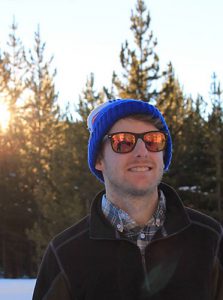
Contact
Biomedical Research Center251 Bayview Boulevard
Suite 200
Baltimore, MD 21224
Email: chase.francis@nih.gov
Education
Ph.D. – University of Maryland, Baltimore, Baltimore, MD (Advisor: Dr. Mary Kay Lobo)
B.A., B.S. – Appalachian State University, Boone, NC
Research Interests
Chase Francis has a long-standing interest in how high frequency stimulation, commonly used in deep brain stimulation, alters motivational states. His research career began at Appalachian State University where he received his B.A. and B.S. in biology and psychology, respectively, studying the effects of audiogenic seizures on emotional states in rats under the mentorship of Dr. Mark Zrull. In 2011, he continued his training at the University of Maryland, Baltimore working in the molecular neurocircuitry lab of Dr. Mary Kay Lobo. Here, he studied the role of medium spiny neuron subtypes in outcomes to social defeat stress and uncovered molecular and structural underpinnings driving alterations in medium spiny neuron neurophysiology. He joined the Synaptic Plasticity Section of NIDA and the lab of Dr. Antonello Bonci in 2016. His current focus is on how stimulation facilitates peptide release within Nucleus Accumbens altering local circuitry and behavioral responding to salient stimuli, with the hopes of refining stimulation protocols to promote differential peptide release. In his free time he enjoys hiking, trail running, and playing guitar.
Selected Publications
2018
Synaptic and intrinsic plasticity in the ventral tegmental area after chronic cocaine. Journal Article
In: Curr Opin Neurobiol, vol. 54, pp. 66–72, 2018, ISSN: 1873-6882 (Electronic); 0959-4388 (Linking).
2017
Molecular basis of dendritic atrophy and activity in stress susceptibility. Journal Article
In: Mol Psychiatry, vol. 22, no. 11, pp. 1512–1519, 2017, ISSN: 1476-5578 (Electronic); 1359-4184 (Linking).
2014
Nucleus accumbens medium spiny neuron subtypes mediate depression-related outcomes to social defeat stress. Journal Article
In: Biol Psychiatry, vol. 77, no. 3, pp. 212–222, 2014, ISSN: 1873-2402 (Electronic); 0006-3223 (Linking).
